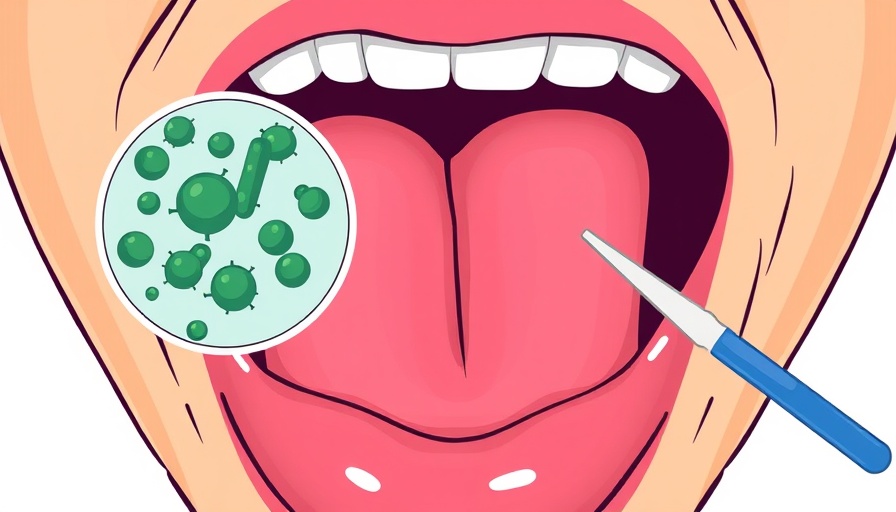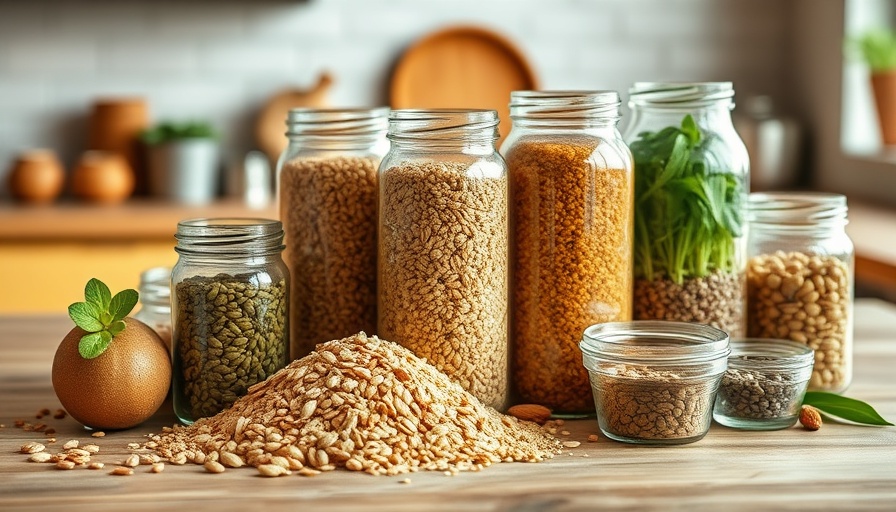
The Hidden Benefits of Tongue Scraping for Oral Health
In our pursuit of optimal health, we often focus on well-known habits like brushing and flossing our teeth. However, an equally important practice often gets overlooked: tongue scraping. This simple action can have significant benefits for our oral microbiome, the delicate ecosystem of bacteria, fungi, and other microorganisms in our mouths.
Understanding Your Oral Microbiome
The oral microbiome serves as the frontline defense against pathogenic bacteria, contributing to everything from digestion to immune function. Just as a forest thrives with diverse plant life, our mouths function best when they host a variety of beneficial microorganisms. Growing evidence suggests that many of these microorganisms are essential for maintaining overall health.
Instead of merely seeking to eliminate harmful bacteria through traditional brushing, understanding our oral microbiome encourages us to foster an environment where beneficial species can thrive. This sophisticated approach helps in maintaining optimal oral health while preventing issues like cavities and gum disease.
The Role of the Tongue in Oral Health
One of the most crucial areas often neglected in oral hygiene is the tongue. Its rugged texture contains numerous papillae, which are ideal environments for bacteria to establish complex communities known as biofilms. These biofilms play a protective role for good bacteria, enabling them to communicate and stay resilient against harmful microorganisms.
However, when harmful bacteria gain the upper hand, they can lead to various issues, including enamel erosion and systemic health problems. While brushing the tongue can be beneficial, it often just mixes these bacteria around, failing to eliminate them effectively.
Why Tongue Scraping?
This is where tongue scraping shines. Unlike brushing, scraping removes entire communities of bacteria and biofilms. By physically dislodging these organisms, tongue scraping can significantly support oral health, making it a superior choice for maintaining a balanced oral microbiome.
Research has shown that many people experience an immediate refreshing sensation post-scraping, an indication that they have effectively removed harmful bacteria. This practice not only helps in freshening breath but also decreases the risk of oral health problems.
Implementing Tongue Scraping in Your Routine
Integrating tongue scraping doesn't require extensive changes to your routine. It can easily be added to your existing oral hygiene practices. Start with a high-quality tongue scraper; these are readily available at pharmacies or holistic health stores. After brushing your teeth, use the scraper gently from the back of the tongue forward, rinsing it after each stroke to remove the bacteria collected. Aim to include it in your morning routine for the best results.
Common Misconceptions About Tongue Scraping
Despite its numerous benefits, some misconceptions surround tongue scraping. For instance, many people believe that the act is painful or unpleasant. In reality, when done correctly, tongue scraping should feel refreshing rather than uncomfortable. Another myth is that it is unnecessary if one brushes the tongue thoroughly; however, scraping provides a level of cleanliness that brushing alone cannot achieve.
Future Trends in Oral Care:
As trends in holistic health gain traction, it’s likely that practices like tongue scraping will draw more attention. Health enthusiasts and professionals continue to advocate for methods enhancing overall well-being. Tongue scraping has the potential to be a pivotal part of advanced oral health regimens that prioritize natural, holistic approaches.
In Conclusion
Don’t overlook the power of tongue scraping in pursuing better oral health. As part of your daily routines, it promotes a flourishing oral microbiome and fresh breath. In an age where preventive care takes precedence, incorporating this small habit can yield huge benefits for your overall health.
 Add Row
Add Row  Add
Add 



Write A Comment